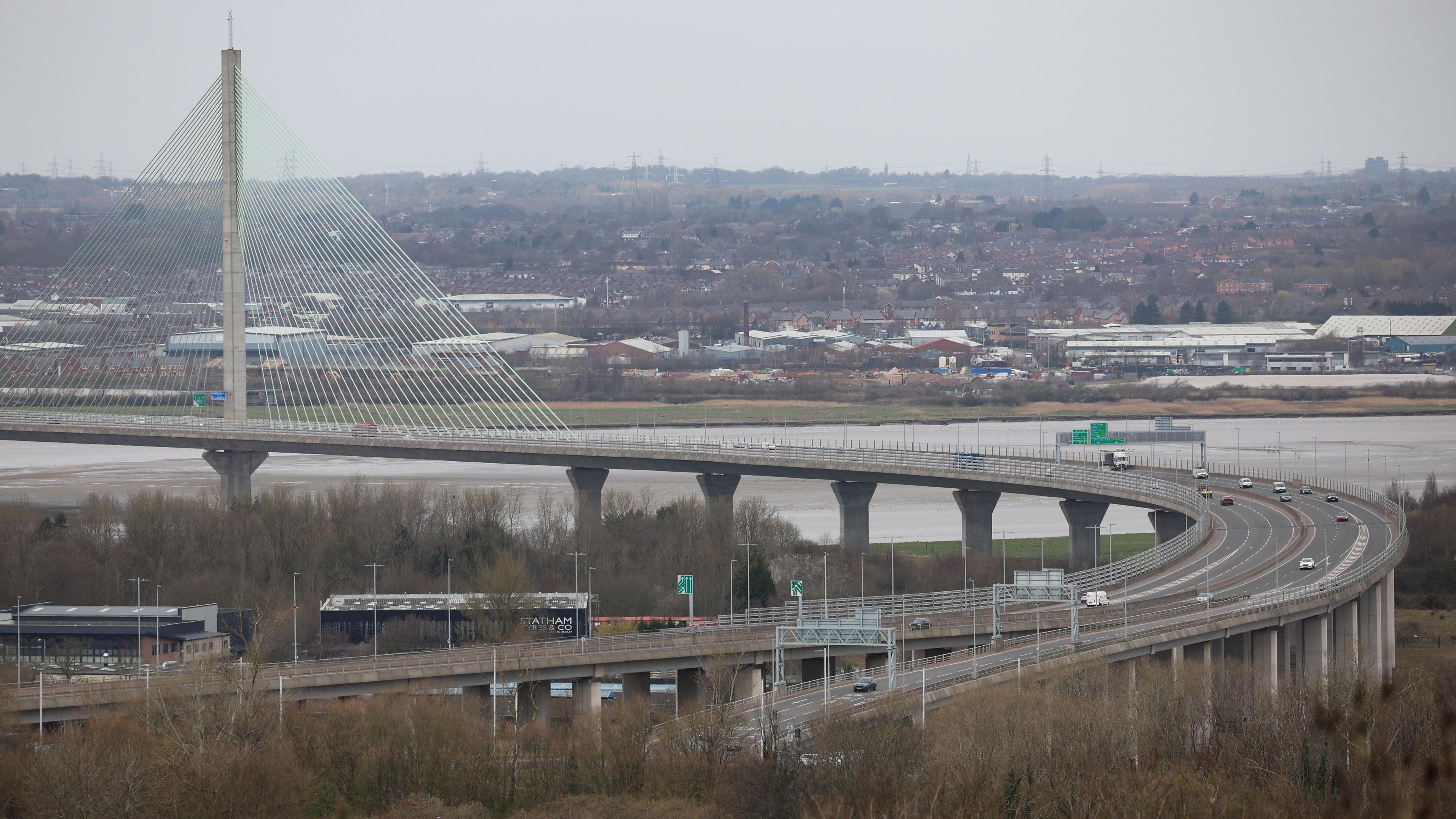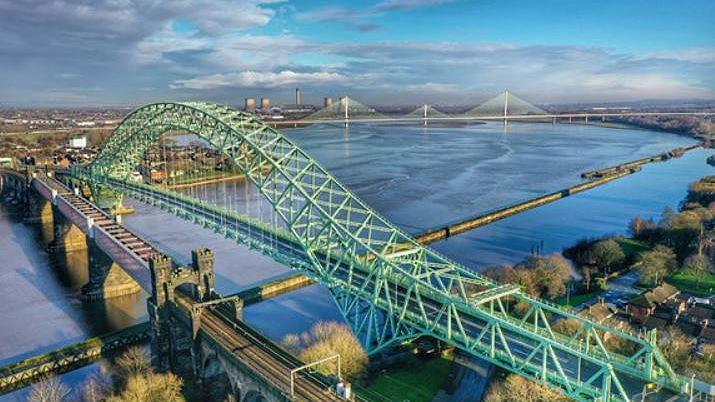Give local firms a toll bridges discount, urges MP

The Mersey Gateway Bridge was opened in 2017
- Published
Local firms who rely on toll bridges to conduct their business in part of Cheshire should be given a discount, an MP has suggested.
Sarah Pochin, Reform UK MP for Runcorn and Helsby, asked Transport Minister Simon Lightwood about money returned to the government each year as part of the Mersey Gateway Bridge's funding deal.
She asked why some of the surplus cash could not be used to help taxi and coach companies.
Halton Borough Council, which owns the bridge, said a discount scheme for local businesses would be in breach of UK competition laws since it would give them an unfair advantage over rivals from outside the borough.

The Silver Jubilee Bridge crossing the River Mersey and the Manchester Ship Canal
Two bridges crossing the River Mersey link Widnes and Runcorn: the Silver Jubilee Bridge and the Mersey Gateway Bridge.
Both have a £2.40 per crossing toll for cars.
While Halton residents can pay an annual fee of £12 for unlimited crossings, local businesses do not qualify.
Firms can pay £110 per month for unlimited crossings for their registered cars and small vans, however.
Pochin said this was unfair, and that local coach companies in particular had no access to any discounts.
She said they included operators "running school children over to swimming lessons, things like that".
"So the cost has to go on to the bill. And the cost for a coach to cross is actually £9.60. So if you double that for both ways, that's a lot of money."
'Campaign continues'
Pochin said she had recently looked into the Mersey Gateway funding agreement, which typically involves some money being returned to the government each year.
The deal is complex and examines a mix of revenue from tolls and government grants.
The Mersey Gateway Project was forecast to cost £1.86bn over 30 years from 2014, when the funding deal started.
It has been reviewed every three years since.
Some of the construction, running and maintenance costs are paid for by tolls, but Halton Borough Council also receives an annual grant from the government.
The amount is based on an annual estimate, and whatever is not used at the end of the financial year is sent back to government, with 15% kept by the council for local transport schemes.
After 2044, in theory the bridge could become toll-free, but that would rely on the government of the day agreeing to fund it from the national highways budget.
During the most recent financial year, Pochin said £6.8m was given back to the Department for Transport (DfT) and £1.2m was kept by Halton Borough Council.
The Reform UK MP said: "If there was £8m unspent of a budget - of a grant that was already ringfenced for these bridges - why can we not use that to start to create a discount scheme for local businesses?"
'Agreed financial model'
The DfT confirmed a meeting had taken place between Pochin and Lightwood.
Pochin said she understood the situation could not change overnight, but pledged to continue campaigning on the subject.
She also said the income from fines generated by people who did not pay their tolls was higher than had been predicted when the bridge opened in 2017.
This money could also help fund a discount scheme, said Pochin.
Halton Borough Council said: "The level of grant support was committed to and paid by the DfT in advance, based upon the agreed financial model.
"There was always an expectation that there would be an element which would be surplus to the requirement to bridge the gap between costs and revenues.
"That is why the formal provisions for how this would be dealt with were defined in advance."
Get in touch
Tell us which stories we should cover in Cheshire
Read more stories from Cheshire on the BBC, watch BBC North West Tonight on BBC iPlayer and follow BBC North West on X, external. You can also send story ideas via Whatsapp to 0808 100 2230.
Related topics
Related Stories
- Published16 October 2024
